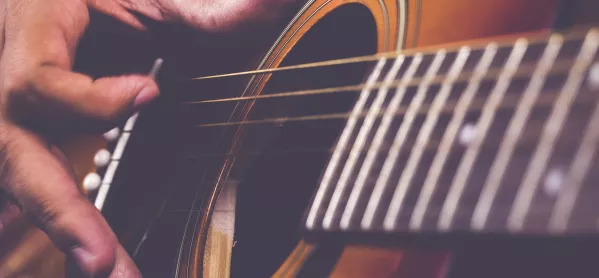Children from low-income families are being priced out of learning musical instruments, new research suggests.
The data indicates that families from lower socioeconomic backgrounds - earning less than £28,000 - are half as likely (19 per cent) to have a child learning an instrument as a family with an income of £48,000 or more (40 per cent).
According to figures from the Musicians’ Union, cost is the greatest barrier, with 41 per cent of those from low-income families saying they do not have the budget for lessons.
The union is calling on the public to sign up to its supporter programme to protect teaching of musical instruments in schools and add weight to its demand for the government to make music available to all.
The poll, in which 1,206 parents of five- to 16-year-olds were surveyed, also suggests there is a regional disparity in access to music.
Regional variation in music tuition
In London, 41 per cent of families have a child who plays a musical instrument, compared with 18 per cent in the North West and 20 per cent in the North East.
In the West Midlands, almost four-fifths (79 per cent) of parents said their children did not play an instrument at all.
Across the UK, the piano and the guitar take the top two spots for most-played instrument, with the clarinet and saxophone emerging as the least popular.
Horace Trubridge, general secretary of the Musicians’ Union, said: “With gaps across the learning of musical instruments, this means we’ll only be hearing music from a small portion of the public growing up in certain areas.
“We want music to be available and attainable for all to enjoy, whether you’re the next Ed Sheeran or simply want to explore more creative subjects.
“The data released today shows the extent of the problem - and we would like to work with government to address this issue.”
A Department for Education spokesperson said: “Learning to play a musical instrument opens all kinds of opportunities for children to express themselves. We believe pupils, regardless of background or where they live, should have this opportunity. That’s why the department has invested £300 million in music hubs between 2016-2020, to give every child the chance to learn an instrument without any cost to them or their families. Just last month, analysis showed that through music hubs over 700,000 children learnt to play instruments in class together last year.”




